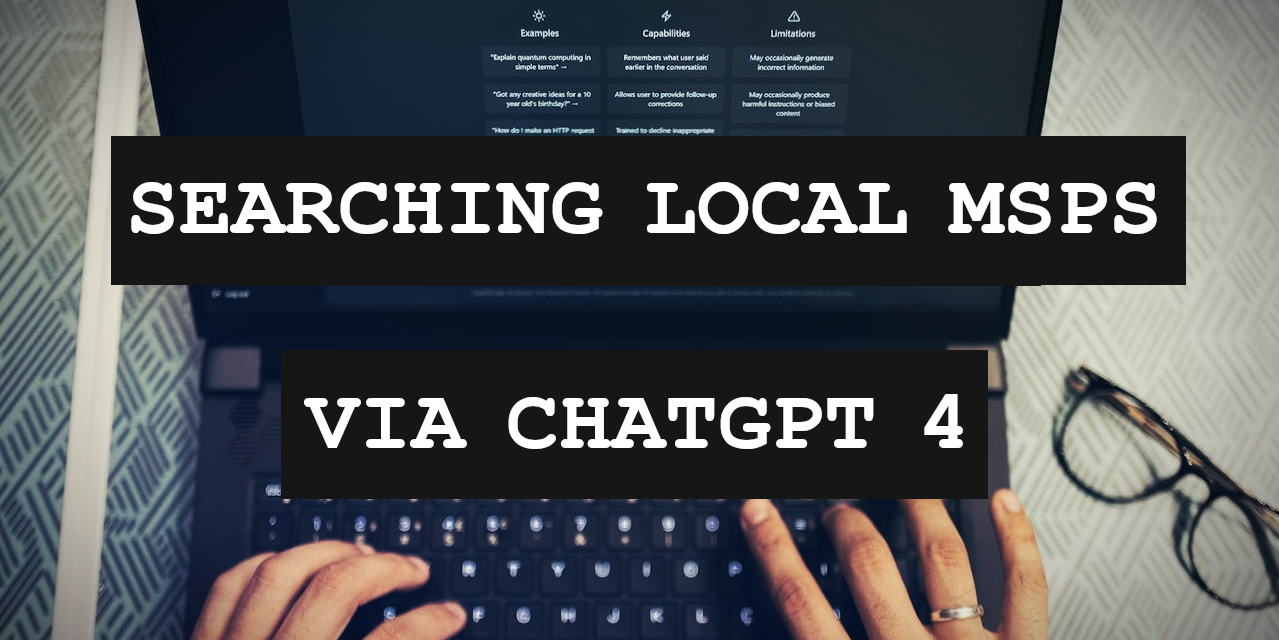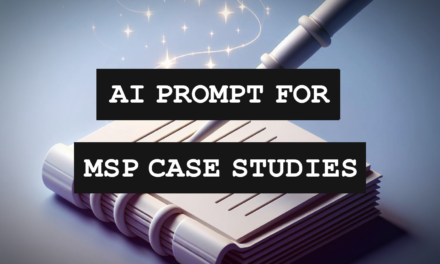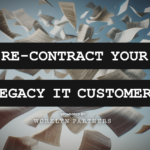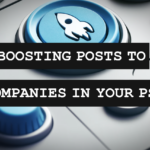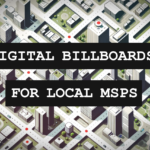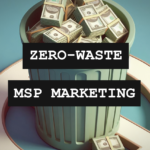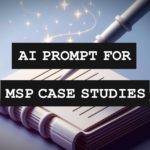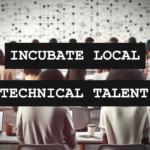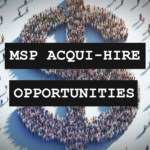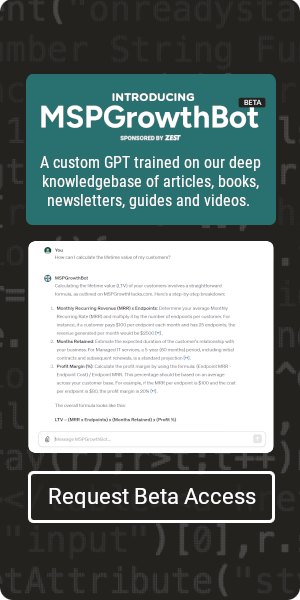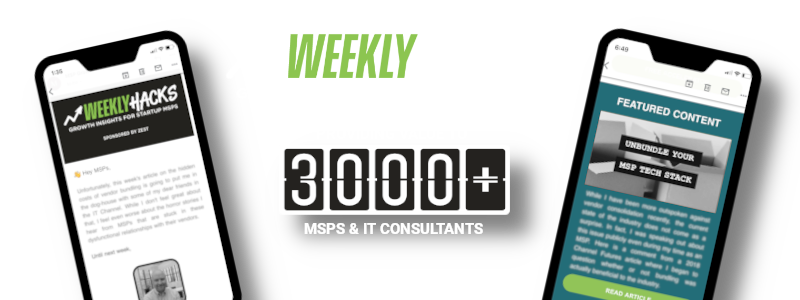The Future of Search
For the greater half of this year, I have been trying to get a pulse on where we stand in terms of search as a means of acquiring traffic and thus new leads and customers. Anecdotally, my Google search activity has been plummeting. I have largely shifted all of the normal queries that I would make throughout the day over to ChatGPT 4, which has dramatically decreased the amount of time that I spend clicking through websites and consuming the web directly. Instead, I ask it to search the web for me and return back precisely what I am looking for, which saves a ton of time and is just a better overall experience. This is made possible by one of the more recent updates to ChatGPT Plus, which uses Bing Search and other APIs to browse the web in real-time.
So what does this mean for search as we know it? And more specifically, how does this impact MSPs that have relied heavily on organic search traffic to drive new business. For example, I know several MSPs who have deployed an SEO strategy inspired by Marcus Sheridan’s 2016 book “They Ask, You Answer” only to realize that they are providing the very answers that are being scraped, aggregated and refined via ChatGPT, without a pageview to be had. This is frustrating to say the least and is an unfortunate consequence of the progress of internet search.
The Ultimate Guide To Cash Flow For Managed Services
Sponsored by Alternative Payments & Zest
Finding An MSP Via ChatGPT
Rather than take a pessimistic view of the progress that AI presents, I wanted to see if I can figure out what new opportunity this might bring now that the game has clearly changed. To accomplish this, I tried to experience what an end customer would go through using ChatGPT to find an MSP, as they previously would have with traditional search. Most importantly, I wanted to see if I could accomplish this without ever having to click a link and visit a website. Here is how this conversation played out and some of my observations along the way:

I started out with a really basic problem that the common end-user would find themselves in. Outdated server, unsupported software, unengaged IT Provider… you know the drill. I was curious if knowing that I was not an IT expert would have any impact on the recommendation, and how soon it would prompt me to consult an expert.


I thought that this 10-step process was surprisingly nuanced. For example, it suggested several industry specific compliance requirements that I should assess, and recommended that I move my case management software from self-hosted to cloud-based. This is the exact advice that an MSP would likely provide me, so getting it right off the bat was pretty impressive. Most notably, it suggested that I find an independent IT consultant, which is exactly the answer I was hoping for. I took the opportunity to zero in on this for my next response.

I thought that it might be interesting if I give it the opportunity to steer me away from using a local provider. After all, I am talking to a robot with all of the world’s data at its fingertips, so I wanted to keep all options open to see where I end up.
The Ultimate Guide To Cash Flow For Managed Services
Sponsored by Alternative Payments & Zest



It was refreshing that it actually gave me clear recommendations after providing pros and cons of local and remote providers. I also found it insightful the way it drew a line between software, cloud, and strategy being ideal for remote, whereas onsite and hardware would require local presence. The other notable point of interest for me in this response, was that it recommended that I look for a “short-term contract” or “trial period” before committing. Since this is has always been debated among MSPs as to whether or not this is good for business, I was surprised to see it pop up in this context. Next, I decided to stick with a local provider to see where that takes me.

I was curious if giving multiple locations would confuse the system or if it would somehow be able to handle both. For context, these two areas are about 25 minutes away from each other by car, in one of my new favorite cities (and home of Zest HQ) Boise, Idaho. While I missed the chance to take a screenshot, after pressing send, ChatGPT immediately started “Searching on Bing” which I found really promising since up until this point, it gave me answers without searching the web in real time.

👏 Bingo! I was starting to get giddy at this point, because this is exactly what I was hoping for. It took in my criteria, searched the web, and provided back a short list of providers that it thought might be a fit. If you read through the descriptions that it provided, you will see that there was actually some logic and consideration behind these choices. I started to become really interested in what this logic might be, so I asked it to tell me which of these providers had the best reviews.
The Ultimate Guide To Cash Flow For Managed Services
Sponsored by Alternative Payments & Zest

Next, it went one-by-one through the list of providers and looked up reviews. It gave me the play-by-play as it did this and I noticed that it often referenced “Birdeye” which is a review management platform and aggregator. It also visited a lot of high-trust platforms such as Better Business Bureau. This process, while automated, did take some time and because of this, I got a network error on the first attempt. Here is what it eventually returned.

Now I became even more curious as to what the criteria was that it used to narrow down all of the potential providers and provide the initial list. I thought that by questioning it within the context of the conversation, I might be able to “trick” it into telling me how it provides these recommendations. This way I can learn more about optimizing a business or website to better show up within these chat-based recommendations.



🤯 Woah! That was a lot more detail than I was expecting. While geographic proximity is obvious, I was surprised at the wide variety of other factors that it was considering and the fact that it tried to provide a balanced list featuring options with different characteristics. This is very similar to how a human might provide their recommendations.
The Ultimate Guide To Cash Flow For Managed Services
Sponsored by Alternative Payments & Zest

Since my initial objective was to see how far I could get to a concrete recommendation without visiting an actual MSP website, I thought the next logical step would be to ask for the contact information directly. Afterall, it did reference this as part of its consideration criteria. I also wanted it to narrow the results by their reviews to be sure it was providing only the best options.

✅ Success! It looks like I found exactly what I was looking for, although only one of the three options presented had an accessible email and phone number. At this point, even though I got what I was looking for, I was eager to keep the conversation going. To put the cherry on top, I asked it to compose an email for me to send to this provider based on our entire conversation so far.





Well if that isn’t a dream introduction for a potential managed services client, then I don’t know what is. I love how it gave an overview of the situation and then even went as far as to prescribe the needs that it anticipates based on the information that I provided. Again, the nuance here is key, as it even suggests remote access capabilities given the dual locations. One would think that the more information that I provided up front, the more precise these recommendations would have been. While I could have kept going down this rabbit hole for hours, I felt like this was a good stopping point and ultimately I believe my questions were answered as where search is heading and how MSPs should adapt.
The Ultimate Guide To Cash Flow For Managed Services
Sponsored by Alternative Payments & Zest
Key Takeaways
This experience was an eye-opener for me. While I use ChatGPT everyday, I constantly find myself feeling amazed at what it can do. This is the first time I experienced the chatbot as a buyer of IT Services, so I learned a ton about what that experience is like and how it differs from the traditional ways that have been common up to this point. Here are a few of my biggest takeaways from this buyer’s journey:
Trust & Experience – It’s no surprise that as an end-user, I feel as though this is just a way better experience than searching the web, clicking on links, visiting websites, etc. In terms of getting the most direct and streamlined response, I have never experienced anything better. Since this is a subject matter that I am very familiar with, I was constantly on the lookout for issues or hallucinations, but I did not experience any. Overall I found the recommendations to be incredibly reliable and trustworthy. If I was in fact a Lawyer from Boise, I would have been very satisfied with this result.
Searchability & Optimization – While the user interface and behavior has completely changed, search as we know still plays a role in this process. However instead of the user scanning the search engine ranking pages (SERPS) the app performs that function on the user’s behalf. So in theory, search presence is just as important as it has always been, only in this case, Bing seems to the search engine of choice for ChatGPT and all of the apps that will eventually be built with OpenAI’s new developer platform. As a result, there may be an opportunity here to optimize for Bing search while competitors are still focused entirely on Google rankings.
Website Copy & Design – If there is anything that I missed in this experience, it was the brand-feel that you get when you visit a company’s website. The logo, the colors, the professionalism… they all play a factor in the traditional online buying experience. Within the context of a plain text chat thread, this is largely absent and therefore you are forced to trust the results provided. For this reason, I think website copy will be incredibly important moving forward, more-so than design. This almost reminds me of the early days of search when “keyword stuffing” was all the rage, only this time around I think clear and concise copy will win out. For example, rather than listing out every zip code that you service (in typical SEO fashion), you could now just as easily say “serving Boise, Idaho and the surrounding 50 mile radius” and it should be able to discern what this means.
Industry Specialization – One of the major differences that chat-based search presents is that the experience is far more tailored to the user. In terms of Managed Services, I think this will primarily present itself by way of industry specialization. If the chatbot knows that the user is a Lawyer, it is going to heavily favor websites that contain language that applies specifically to that user. Because of this, I think it is important for MSPs to start building out pages for their verticals of choice, if they haven’t already.
Contact Information – As you probably saw in the example, some of the recommendations did not contain contact information, however after checking out their websites (yes, I did eventually click on them), it appears that the sites did in fact have email addresses and phone numbers. From my observation, it seems as though ChatGPT did not recognize the contact info when it was provided via anchor text in a link. While this will probably be improved upon in a future update, I did find it as a good reminder that there are still flaws in this experience.
Social Proof – As the chatbot was fetching user reviews, it almost always looked at Birdeye first, then went to Better Business Bureau as a backstop if it could not find anything. Birdeye appears to pull reviews from Facebook. Google and 150+ other sources. It also seems to offer some great features in terms of review generation, so might be worth looking into if your company is in need of more social proof. What I found to be most notable is that when I asked it to check for reviews on these providers, it didn’t reference visiting their website, therefore it appeared to only be interested in checking third-party sites. This means that testimonials or ratings provided on your website directly will probably not be considered.
User Education – I thought that ChatGPT did a really superb job in educating me while trying to help me find a solution to my problem. Since MSPs have been trying to tackle the problem of user education for years, it’s encouraging that there is a tool out there that is able to provide this level of insight in a completely neutral and unbiased way. As people to continue to use and trust these platforms, I am hopeful that they will help to close the knowledge gap which will lead to more informed Business Owners and IT Customers. This is a win for everyone.
Conclusion
My overall conclusion from this experience is that search is NOT dead and websites are still very much a thing. They play a pivotal role in this experience and that will likely not change. We need to start thinking about how our online presence appears, not to humans, but rather to chatbots. I’m sure as these features are rolled out beyond the paywall and more research is done, we will start to see optimization best practices take shape, but it is too early for that now. Again, this is all reminiscent of the early days of search when it was an all out gold rush to show up on the first page of Google and anyone who had the formula could build a 7 figure business from it. Given how crowded and tired that has become, I am excited about this new frontier and look forward to constantly tinkering, testing, and learning as it continues to develop.

SPONSORED BY ZEST
